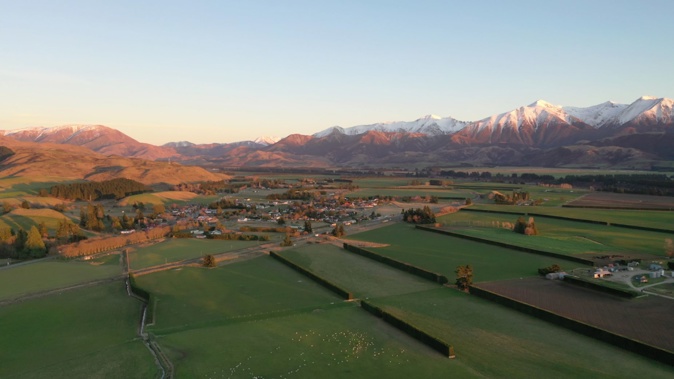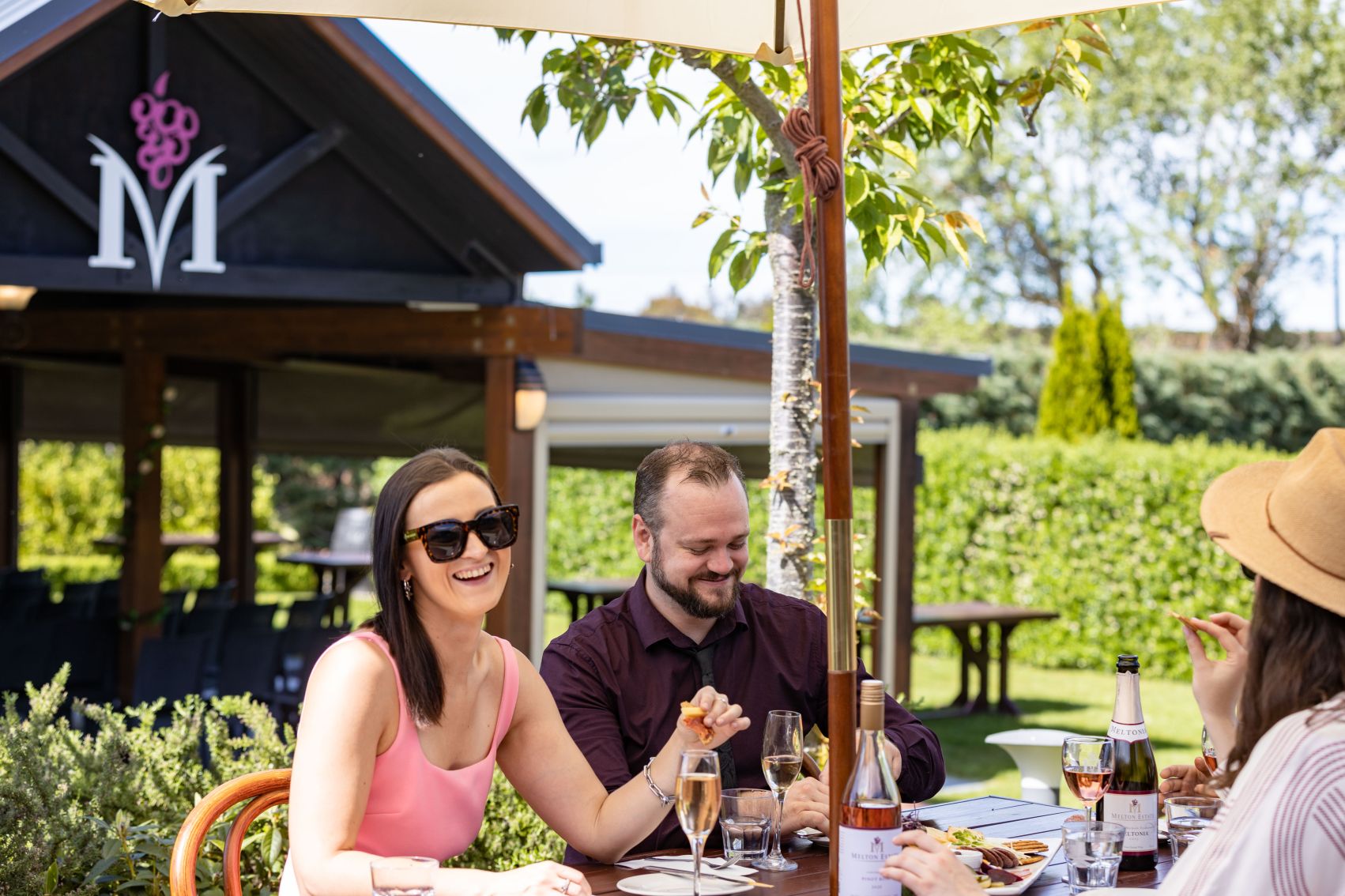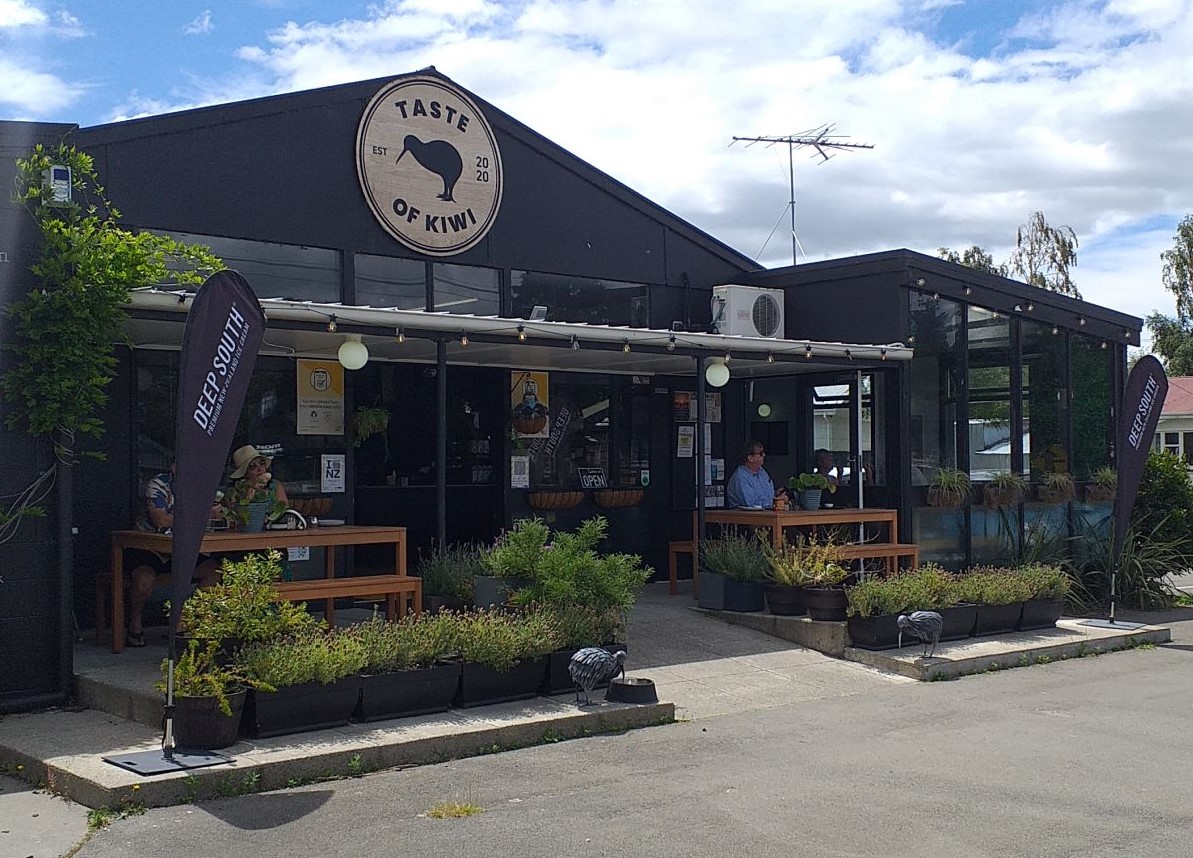
Selwyn’s Great Alpine Highway is surely one of New Zealand’s greatest touring routes. Over the space of two hours behind the wheel, a kaleidoscope of revered landscapes and charismatic country gems unfurl their many charms. Officially known as SH73, the Great Alpine Highway courses across the chequerboard of the Canterbury Plains before rollicking through the foothills of the Southern Alps, all the way to Arthur’s Pass and the imperious peaks of the Main Divide. For time-pressed road-trippers eagerly heading to the West Coast, it’s all about the destination and not so much the journey. But the Great Alpine Highway, is such a journey of awe and saga, treat yourself to its many splendours as you hop-scotch your way to Arthur’s Pass, savouring its full grandeur. As the Garden City blurs in your rear-view mirror, the iron-flat landscape opens out into a patchwork quilt of pastoral fields stretching across the plains.
Your first stop should be in West Melton where Melton Estate is nestled among 12 acres of vines. This beautiful boutique winery boasts a modern restaurant and event venue under the command of Philip Caunter. The winery restaurant is flanked by Pinot Noir vines, with multiple indoor / outdoor options, including an expansive deck overlooking the vineyards and a new games lawn. Melton Estate’s range of wines span Pinot Gris, Pinot Noir, Riesling, Chardonnay, Rosé, Sauvignon Blanc, and their legendary Sparkling Riesling known as “Summer Love”. Another great option is their Méthode Traditionnelle, Meltonia.
The popular restaurant serves superb food that is matched to these handcrafted boutique wines, or you can sample and stock up on their wines from the Cellar Door. They’re open year-round, Thursday to Sunday from 10am to 5pm, while the venue is also sought after for private celebrations and corporate events. A recent innovation are the private wine tours and tastings and the new ‘Vine Trail’ at Melton Estate. Grab a glass and sip away as you walk the vine trail. Each stop is a new variety of grape and the chance to see the beginning of the wine-making journey in the vineyard. www.meltonestate.co.nz

Stocked up with Summer Love and Meltonia, I charged westwards to Darfield. Backed by the Malvern Hills, this good honest country town beckons as a pie-stop. The restored Darfield Jail evocatively graces the roadside, while the go-to for homemade wholesome food and Hummingbird coffee is the Fat Beagle Café, housed in a main street wooden villa. You can’t go wrong with a Reuben Sandwich.
As the serrated peaks of Torlesse Range shuffles ever closer, so does Sheffield, home to the award-winning “Famous Sheffield Pie Shop”. Home-style baking, traditional cakes, creamed treats and yes, gorgeous pies are all part of the package. Pie picks? The venison and whisky relish combo, or the traditional steak and mushroom are equally drool-worthy. Another foodie fuel-stop soon beckons before the natural theatre takes hold – Springfield. Yes, it’s home to the famous pink doughnut. The six-tonne landmark replaces an earlier version which was damaged by fire in 2009, which was originally installed to celebrate The Simpsons movie release. If the sculpture leaves you hankering, rest assured, the neighbouring Springfield Donuts caravan is where to head for their tasty doughy bundles of joy. Choose your own toppings!
But just past the caravan, set aside time for a moreish pit-stop at Taste of Kiwi Café. Open just two years, Cam and Kristina Clark have crafted an eye-catching and embracing hospitality hotspot in the heart of Springfield, swooned over by locals and passers-by, alike. This family-friendly café is open daily for breakfast and lunch, with a splendid array of menu temptations. A signature dish on the lunch menu is their take on Mince on Toast; consisting of beef mince and poached egg served on potato cake with toasted ciabatta. The cabinet fare ticks all the boxes, offering all the classics with a contemporary take. Don’t skip over the ginger and pistachio slice! Serving Allpress Coffee and the full flavour range of freshly scooped Deep South ice-cream, all bases are covered at Taste of Kiwi. It’s a do-not-miss.
Beyond Springfield, the paddocks and pivot irrigators give way to tussock-mopped foothills of the Southern Alps, rolling country and majestic alpine views, as you haul your way up Porters Pass – a cherished childhood haunt for weekend daytrips offering free family fun in freshly fallen snow, at a height of 939 metres. Just beyond Porters Pass, enjoy a lakeside stroll, wrapped in alpine majesty at Lake Lyndon. Back on the highway, the Castle Hill Basin unfurls its splendour, accentuated by one of the road trip’s biggest headliners, the spell-binding limestone rock formations. In recent years, the site has captured the imagination of global travelers, as scenes from the 2005 blockbuster, The Chronicles of Narnia: The Lion, the Witch and the Wardrobe were filmed here. Kura Tāwhiti/Castle Hill was once under a large, shallow inland sea that began to fill in about 30 million years ago. Pressure over time caused extensive uplift, folding and faulting of the Torlesse and Craigieburn ranges.

The limestone rock has been eroded by water into wondrous and whimsical sculptured landforms. Some of the rock outcrops are 30 metres high, adding to the natural drama. Kura Tāwhiti is revered by Ngāi Tahu, the iwi have a long association with the area, as a place their forebears would shelter on food gathering trips. The grand, fortress-like limestone rock battlements of Kura Tāwhiti prompted early European travellers to name the area Castle Hill. The easy 20 minute access track will get you up and close with these bewitching formations, fawned over by rock-climbers. The site is also a refuge for hidden treasures - some of the rarest and most endangered plants in Canterbury. Once covered in tōtara and tall shrubs, tussock and pasture are now the norm, with one lone, surviving tōtara nearby.
Kura Tāwhiti was the first reserve to be established in New Zealand specifically to protect a plant – the Castle Hill buttercup. With just 67 plants in existence, the Castle Hill buttercup can only be found within this 6-hectare reserve. Bounded by the high mountains of Torlesse Range to the east and the Craigieburn Range to the west, the limestone tors are a captivating site. Back on the road, sidle up to another alpine body of water, Lake Pearson, a large and attractive hourglass shaped lake, popular for trout and salmon fishing.
Before long, the sinuous expanse of the upper reaches of the Waimakariri River dominate the landscape, as the highway hugs its banks. Drink stop? Pop into the time-honoured, history-dripping Bealey Hotel’s Crafty Moa Restaurant & Bar, which scooped a frenzy of media attention 25 years ago, after the publican claimed he’d had a personal encounter with moa – even wrestling with the bird before it got away! The township was established in 1867 as an overnight stop for the Cobb & Co coach service, shuttling hardy travelers between Christchurch and the West Coast goldfields.
From Bealey, the highway crosses the Waimakariri River, entering Arthur’s Pass National Park, with the Bealey River shimmering to your right. Tootling through the dense beech forest, as the snow-capped peaks of the Southern Alps imperiously tower around you, the rustic alpine village of Arthur’s Pass soon rises up to greet you. Its backstory is imbued with nearly as much guts and glory as the knock-out alpine scenery. The township and the pass pay tribute to Arthur Dudley Dobson who had been tasked by Canterbury’s Chief Surveyor, Thomas Cass, to find an alpine route through to the West Coast from the Waimakariri watershed, as the Gold Rush began. The family link continued, as it was Arthur’s father, Edward Dobson who was the engineering chief for the roading project. It remains the highest mountain pass, at 920 metres, across the Alps today.
Later, the Ōtira tunnel took the railway line beneath the alpine pass, which gave birth to its namesake alpine hamlet, beginning life as a construction settlement for tunnel workers. On my recent visit, the small settlement was abuzz with bikers, hikers and day-trippers, eagerly lining up to grab some lunch from the eateries, flanking the highway. The fearlessly audacious kea, the world's only alpine parrot, was out in force, vividly reinforcing their cheeky reputation for chewing and shredding car aerials and window wipers. Well-marked day walks fan out around the national park's alpine valleys, providing mountain and waterfall views, spanning all levels of endurance. There’s a gorgeous historic walk circuit, threading together a plethora of nuggets around the village. Head to the DOC Visitor’s Centre to size up all the walking options.
The classic Arthur's Pass track is to Avalanche Peak, a 7km loop taking around six to eight hours. It's a moderate to strenuous trail, so a good standard of fitness is essential for the total climb and descent of around 1000m. The final 200m on a narrow ridge is not for the faint-hearted. The full Arthur's Pass Walking Track, a 6.8km (two hours, 40 minutes) route leads you to the historic Dobson Memorial on the summit. Taking in waterfalls and supreme mountain views, it's a relatively easy walk with a short steep section around Bridal Veil Falls. If you’re up for shorter walk, opt for Devil's Punchbowl Falls. It’s an easy 2km (one hour) experience and the most popular walk with visitors. After rain, those falls gush like a fire hydrant. (From the Punchbowl car park, a short walk takes you directly above the rail tunnel. time it right and you can feel the rumble of the train passing beneath you.)
At the other end of the spectrum, a challenging and rigorous work-out ensues on the steep three-hour return track to killer alpine views at Temple Basin. Be wary, the fickle weather can change incredibly quickly. Drive beyond Arthur’s Pass village to reach the summit. The Dobson Memorial at is a great stop, laced in walking trails. In the warmer months, the summer alpine wildflowers are stunning. Revel in the engineering prowess of this weather-beaten alpine highway. Previously prone to being blocked by landslides or avalanches, much of the risk was mitigated with the opening of the gob-smacking Otira Viaduct in 1999, spanning 440 metres of unstable terrain. This impressive engineering feat soars above the steep gorge and tight zig-zags of the old road. You can call into the viaduct lookout at ‘Deaths Corner’ to see the old and new roads. The Great Alpine Highway is a triumph for travelers, nourishing the soul at every turn, loaded with history, pioneering spirit and truly epic wilderness scenery. Take your time. Soak it up.
Where to stay? Wilderness Lodge Arthur’s Pass combines nature and sheep farming discovery with high quality accommodation in a sublime natural setting. The lodge rests in the middle of a 4000 acre working sheep farm and nature reserve, enrobed by the tall peaks of Arthur’s Pass National Park. Superb fresh food, fine wine, attentive staff and stylish lodgings combine to make the property a sanctuary for outdoorsy adventure. Naturalist guides will accentuate the experience of exploring the mountains, lakes and forests surrounding the property. Escape the crowds in this breathtaking alpine haven. https://www.wildernesslodge.co.nz/new-zealand
Bounded by the Rakaia and Waimakariri Rivers, and stretching from the coast to Arthur’s Pass National Park, Selwyn serves up an astonishing variety of landscapes, country towns and villages, extraordinary wilderness adventures and road trips to remember. For more trip inspiration, head to https://selwyn.nz/
Mike Yardley is our resident traveler on Jack Tame Saturday Mornings.
Take your Radio, Podcasts and Music with you









